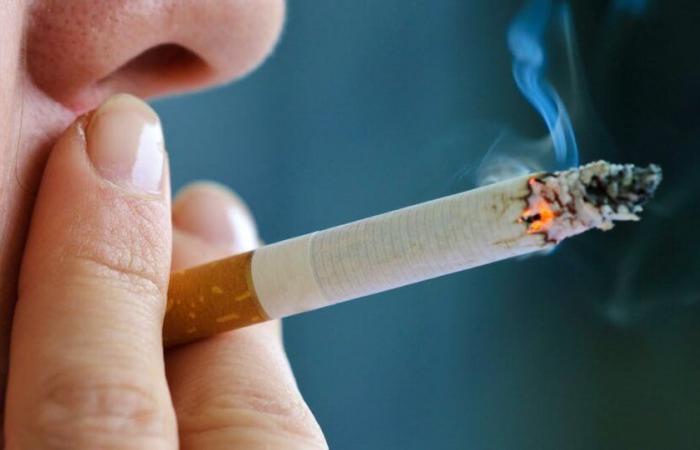(ETX Daily Up) – It is well known: smoking is harmful. Researchers at University College London have established that on average, a single cigarette shortens a smoker’s life by around 20 minutes. But the harms of tobacco don’t stop there. A study, published in Nicotine & Tobacco Research, reveals that it can also weigh on the income of young workers, particularly those with low qualifications.
Mac99 / Getty Images
Although global tobacco consumption is decreasing, the figures remain worrying. According to the World Health Organization, more than 8 million people die from it every year, including 1.3 million non-smokers exposed to second-hand smoke. In addition to these health consequences, tobacco also has a direct impact on the economic prospects of smokers.
A Finnish research team found evidence of this after analyzing data from the Cardiovascular Risk in Young Finns survey. This project follows 3,596 participants born between 1962 and 1977, from different regions of Finland. By crossing this information with statistics on the labor market and the social origins of the participants, the researchers explored the impact of smoking on income and employment between 2001 and 2019.
To measure this impact, scientists used “pack-years”, a unit combining the number of cigarettes smoked daily and the duration of consumption. For example, ten pack-years correspond to one pack smoked every day for ten years.
Researchers found that an additional unit of “pack-years” led to a 1.8% drop in revenue. Concretely, reducing your tobacco consumption by five “pack-years” could increase your income by 9%. They also observed that an additional “pack-year” reduced the time spent in employment by 0.5%.
In summary, heavy smokers suffer heavily from the consequences of their nicotine addiction, both financially and professionally. An interesting point is that the wage gaps between smokers and non-smokers are particularly marked among young, low-skilled workers, although the difference tends to narrow with age. This phenomenon could be explained by the growing rejection of tobacco in new generations, where it is becoming less and less common.
There is still a glimmer of hope. Former smokers, unlike those who continue their consumption into adulthood, escape these economic losses.
The results of this study call for a deep awareness: tobacco does not only harm health, it also compromises the financial and professional future of smokers. By highlighting the hidden costs of smoking, public policymakers could not only encourage healthier behaviors, but also strengthen the economic prospects of younger generations. Proof, if any were needed, that smoking is a decision with serious consequences.






